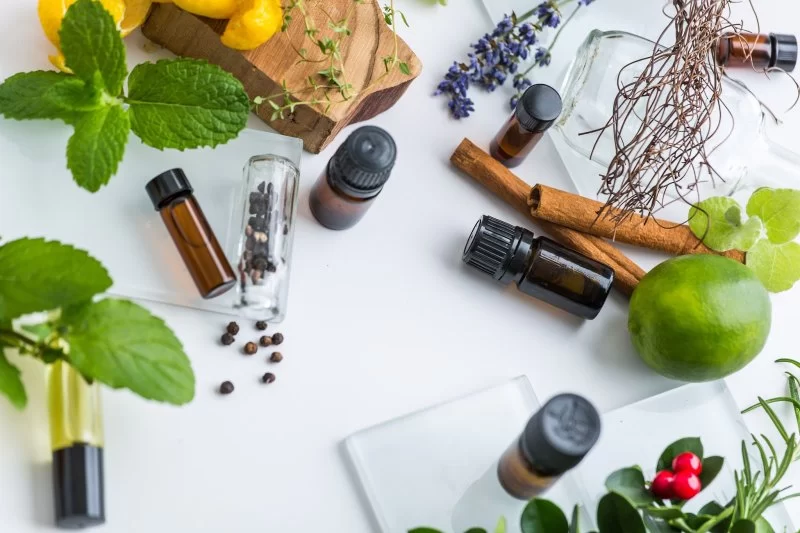- why-essential-oils-are-popular-for-skin-care - Why Essential Oils Are Popular for Skin Care and Acne Treatment
- tea-tree-oil-acne-fighting-superstar - Tea Tree Oil: The Acne-Fighting Superstar
- lavender-oil-calming-and-skin-balancing - Lavender Oil: Calming and Skin-Balancing
- rosehip-oil-scar-repair-and-skin-renewal - Rosehip Oil: Scar Repair and Skin Renewal
- frankincense-oil-for-aging-and-acne - Frankincense Oil: A Powerhouse for Aging Skin and Acne
- real-user-stories-essential-oils - Real User Stories: How Essential Oils Transformed Skin
- how-to-use-essential-oils-safely - How to Use Essential Oils Safely on Skin
- where-to-find-quality-essential-oils - Where to Find Quality Essential Oils That Work
1. Why Essential Oils Are Popular for Skin Care and Acne Treatment
In the world of natural beauty, essential oils have become the go-to remedy for a range of skin concerns—from stubborn breakouts to dull, uneven texture. But why are these potent plant extracts so effective? The answer lies in their anti-inflammatory, antibacterial, and antioxidant properties that help restore balance to the skin without harsh chemicals. If you're wondering why more dermatologists and influencers are adding them to their skin routines, it's because these oils, when used properly, often deliver real results.
Whether you’re battling hormonal acne or trying to fade old acne scars, certain essential oils target specific skin issues. Keep reading to find out which ones are worth your attention—and which ones to approach with care.
2. Tea Tree Oil: The Acne-Fighting Superstar
Tea tree oil has become almost synonymous with natural acne treatment. Extracted from the leaves of the Melaleuca tree, it’s known for its antibacterial and antimicrobial powers that help zap pimples without overly drying the skin. Studies have shown that a 5% tea tree oil solution is nearly as effective as benzoyl peroxide but with fewer side effects.
One Reddit user shared how switching to tea tree oil helped reduce their cystic acne flare-ups within weeks—after years of trying expensive prescription creams. Just a few drops mixed with aloe vera gel became their holy grail night treatment.
3. Lavender Oil: Calming and Skin-Balancing
While lavender is often associated with relaxation and sleep, it also plays a powerful role in skin care. Its anti-inflammatory and calming properties make it ideal for irritated or acne-prone skin. Lavender oil also has mild antibacterial effects, which can help prevent breakouts from forming in the first place.
For those with combination skin, lavender helps regulate oil production without stripping the skin. Some users even apply it in a warm steam facial for a spa-like effect that soothes both the skin and the mind.
4. Rosehip Oil: Scar Repair and Skin Renewal
If post-acne scarring or hyperpigmentation is your main concern, rosehip oil is your new best friend. Rich in vitamin A and essential fatty acids, this oil helps improve skin texture, reduce dark spots, and support collagen production.
One Instagram skincare blogger posted before-and-after photos of her cheeks after three months of using rosehip oil nightly. The difference was striking—fewer red marks, smoother tone, and an overall glow that no filter could fake.
5. Frankincense Oil: A Powerhouse for Aging Skin and Acne
It might sound ancient, but frankincense oil is still trending for a reason. It’s packed with anti-inflammatory benefits and helps tighten the skin, reduce oiliness, and minimize the appearance of pores. Plus, its gentle yet powerful formula makes it safe for both mature and acne-prone skin types.
Many users layer it with a carrier oil like jojoba or argan for a nightly serum that combats fine lines and blemishes in one swipe. It's a rare example of an ingredient that works for both teenagers and those battling adult acne.
6. Real User Stories: How Essential Oils Transformed Skin
We’ve heard stories from all over—from teens in Texas to makeup artists in NYC. One woman who struggled with adult acne for over a decade found success using a rotation of lavender and tea tree oil. She described her first “clear skin” selfie at 33 as life-changing.
Another user shared on a skincare forum how using frankincense oil helped them reduce both redness and wrinkles after pregnancy-induced acne left their skin uneven. It’s these real-life transformations that prove how impactful plant-based oils can be when used correctly.
7. How to Use Essential Oils Safely on Skin
Essential oils are potent, so dilution is crucial. Always mix them with a carrier oil—such as jojoba, rosehip, or sweet almond—before applying to the face. A general guideline is 1–2 drops of essential oil per teaspoon of carrier oil.
Patch testing is also important. Apply a diluted mix to the inside of your wrist or behind the ear and wait 24 hours. If no irritation occurs, it's likely safe for your face. Never apply undiluted essential oils directly on the skin, especially if you have sensitive or broken skin.
8. Where to Find Quality Essential Oils That Work
Not all essential oils are created equal. Purity, sourcing, and production methods vary widely. For therapeutic benefits, always choose oils labeled as 100% pure, ideally organic and sourced from reputable distillers.
Looking for reliable sources? Scent Snob offers curated collections of high-quality essential oils specifically recommended for skin care and acne treatment. Whether you're starting fresh or upgrading your current skincare lineup, their reviews and ingredient breakdowns will guide you to the best picks for your skin type.


0 comments